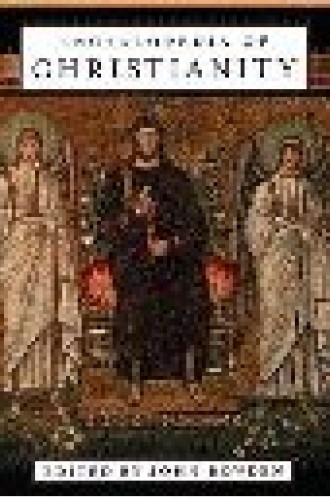Encyclopedia of Christianity
Ten years in the making, the new Encyclopedia of Christianity, edited by John Bowden, is a major scholarly achievement. This single volume contains 33 gateway entries to pivotal subjects; 300 major articles by distinguished authorities; 166 strategically located, boxed items on various themes; and a who’s who of 400 (mainly male) historically influential Christians.
This will probably be the last credible Christian compendium of such content from this constituency. Most of the contributing authorities hail from Europe and North America. When Oxford attempts a future venture of this magnitude, the emerging Christianity of the southern and eastern two-thirds of the world will require—by reason of its sheer size and growing influence—that the material more adequately reflect that very changed reality.
Several of the articles in these 1,408 pages stand out. Writing from a non-Lutheran, noncontinental perspective, C. Scott Dixon, of the Queen’s University Belfast, introduces Luther’s theology. Lutherans continue to struggle with whether they are a church per se or a renewal movement within the catholic tradition; writing on Lutheranism, Norman J. Hjelm, former director of faith and order at the National Council of Churches, helps readers of various backgrounds to look seriously at religious identity in a pluralistic and globalized world.
William Burrows, managing editor of Orbis Books, offers a major thematic essay on missiology from a Catholic perspective. Reflecting the ideological freedom granted contributors, Burrows puzzles over whether the church’s mission is justified and redeemable in today’s secularized, multifaith world. His concern is real, especially after millennia of internecine Christian conflict and the more recent collusion with colonialism. Burrows concludes that there is an important, continuing place for mission if that means wholistic, contextualized proclamation of Good News. The mission of the church is, of necessity, a multifaceted, pluralistic enterprise whose meanings transcend particularistic categories. Its message will always be more liberating than the vessels that contain it.
Veteran church observer Martin E. Marty, professor emeritus at the University of Chicago and a Century contributing editor, describes Christianity in North America. My Canadian bias confirms Marty’s prudent statement that North American religion is highly regionalized and geographically diverse. I therefore take issue with Marty, who seems to interpret Canada through an American lens, underestimating the influence of Catholicism in a country that, unlike the U.S., is 43 percent Catholic.
A boxed piece on the “Witch Craze,” written by an editorial team and accompanying an article on Satan, calls the European and American witch hunts between the 14th and 17th centuries a strange phenomenon of Christianity. A partial explanation is that they were caused by the sexual obsessions of celibate investigators who used mainly women as scapegoats to bear the blame for natural disasters and various social crises. These hunts cropped up in such diverse places as Scotland and Salem, but not in Ireland or Scandinavia. The Enlightenment finally brought the witch hunts to an end in the West.
Useful for serious research or enjoyable browsing, this volume is worth securing for a public, academic or even personal library.






